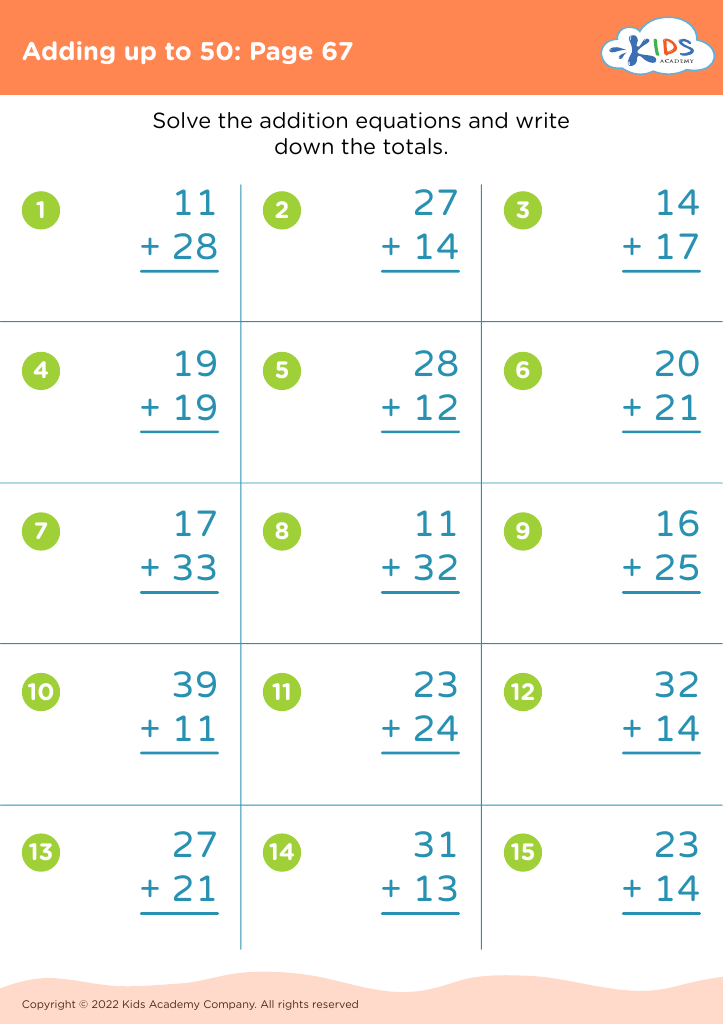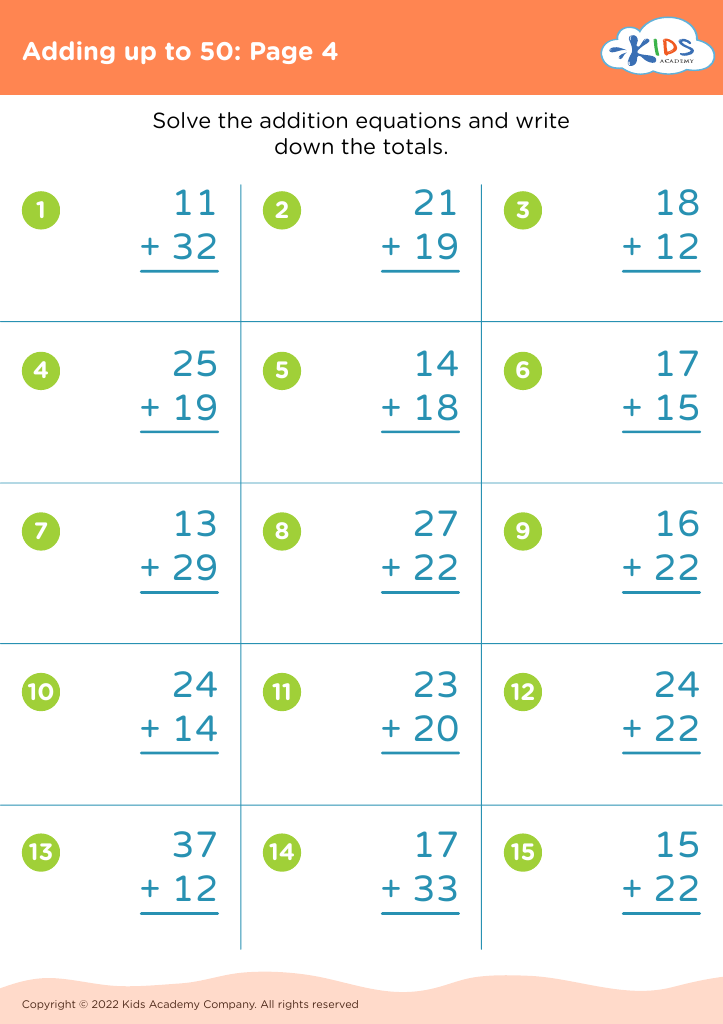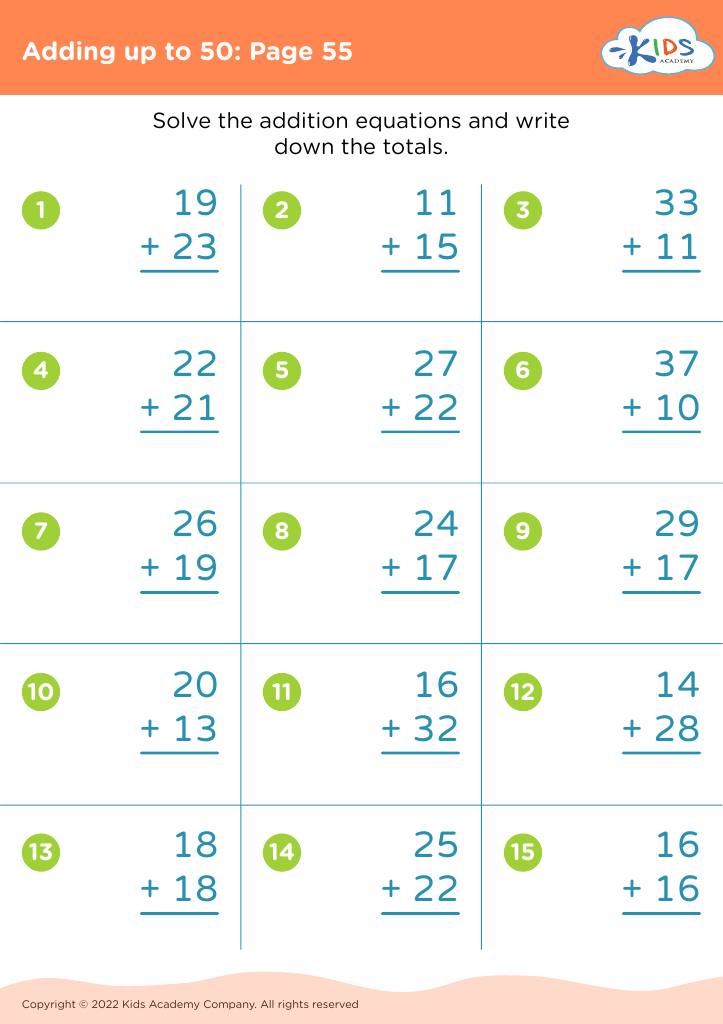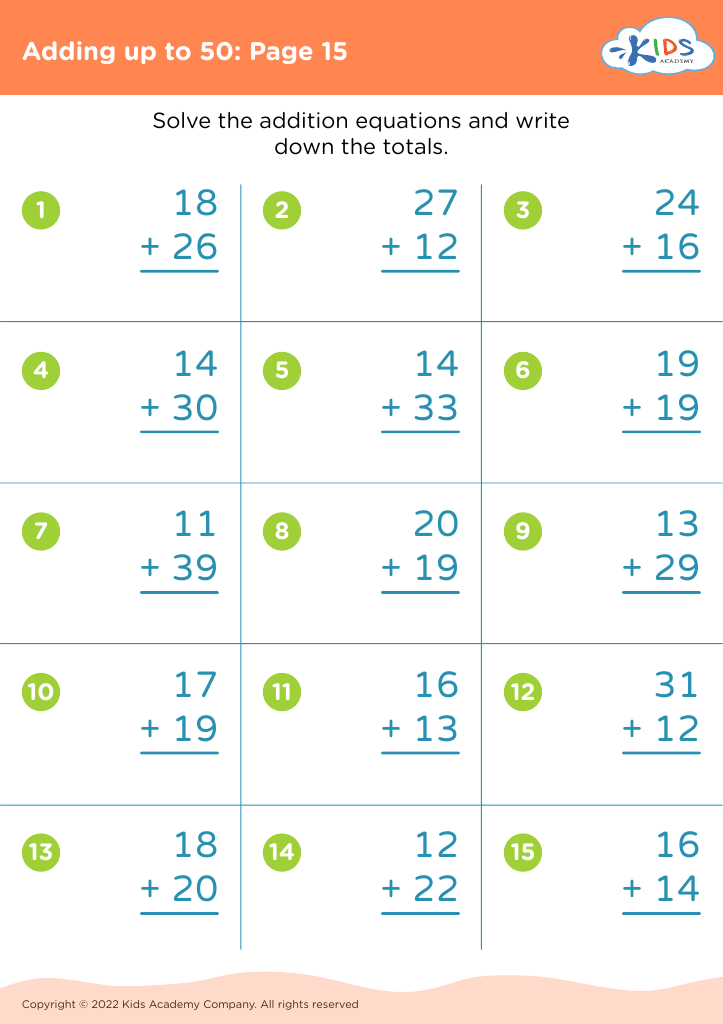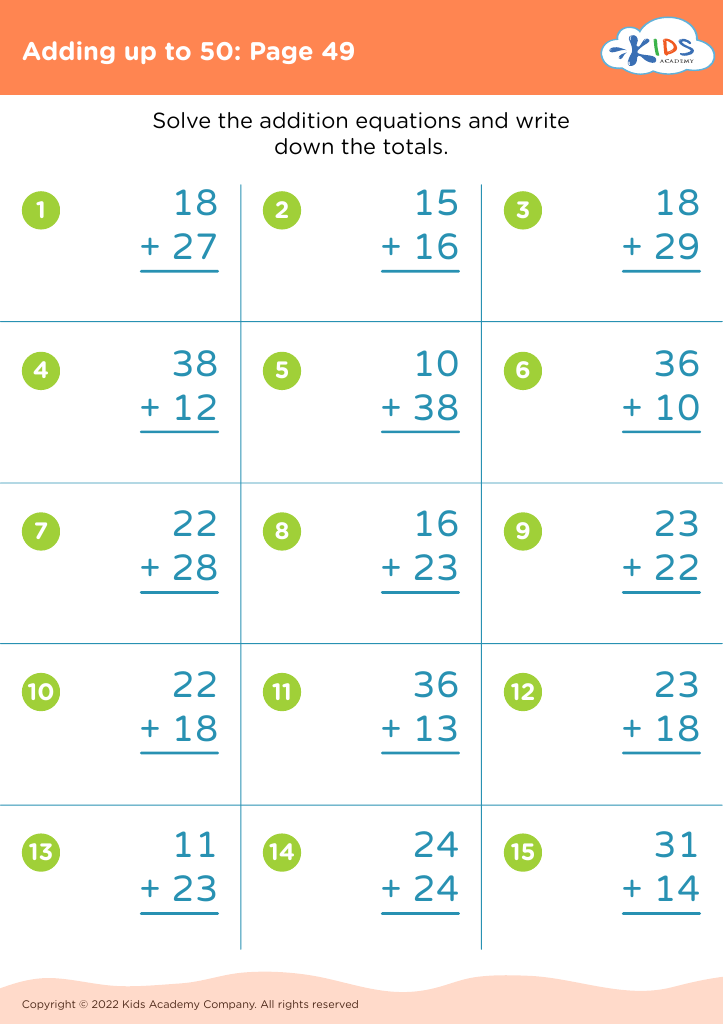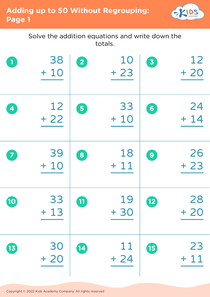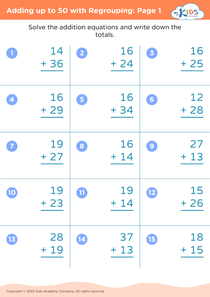Comparing Fractions Adding up to 50 Misc Worksheets for Ages 6-8
11 filtered results
-
From - To
Explore our engaging worksheets designed for children aged 6-8, focused on comparing fractions that add up to 50. These resources make learning fun and interactive, helping young learners grasp essential math concepts. Each worksheet is crafted to enhance critical thinking skills through colorful illustrations and hands-on activities. Your child will develop a deeper understanding of fractions, improving their ability to compare and contrast while solving problems. Perfect for classroom use or at-home practice, our materials support diverse learning styles and foster confidence in mathematics. Dive into our collection and empower your child's math journey today!
Comparing fractions is a fundamental skill in mathematics that builds a foundation for more advanced concepts later on. For children ages 6-8, understanding how to compare fractions can enhance their number sense and promote mathematical reasoning. It's crucial for parents and teachers to care about this topic because mastery of fractions enables children to make sense of the world around them, from everyday cooking to understanding portions in school lunch scenarios.
Engaging with tasks that involve comparing fractions—in particular, those that incorporate playful contexts like adding up to 50—can turn a seemingly abstract concept into something tangible and relatable. Using real-world scenarios encourages children to solve problems creatively, promoting critical thinking and analytical skills. Furthermore, these activities facilitate discussions about equivalence, size, and relationships between numbers, fostering a deep understanding.
Additionally, when children learn to accurately evaluate and compare fractions, it builds their confidence and prepares them for future math challenges. With a strong grasp on fraction comparison reinforced through fun activities, children will be better apt to tackle other mathematical areas, ultimately laying the groundwork for lasting success in mathematics. Therefore, it is vital for parents and teachers to prioritize these early learning experiences in their educational practices.


